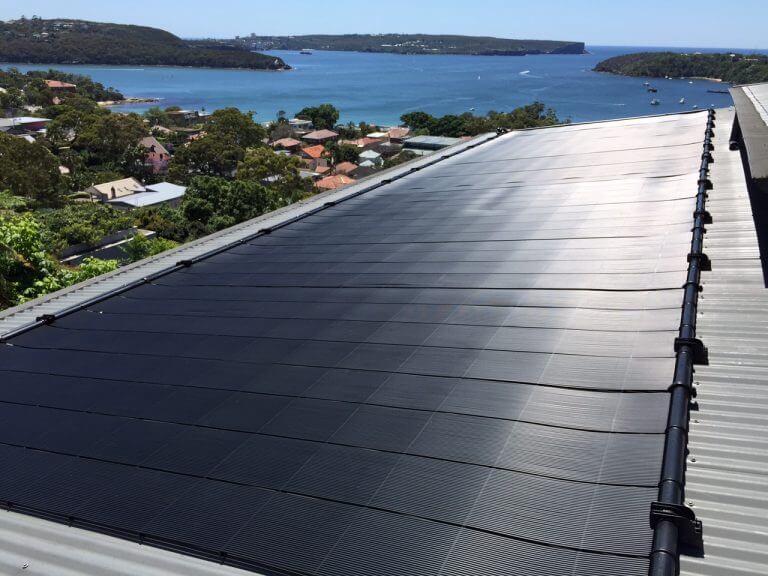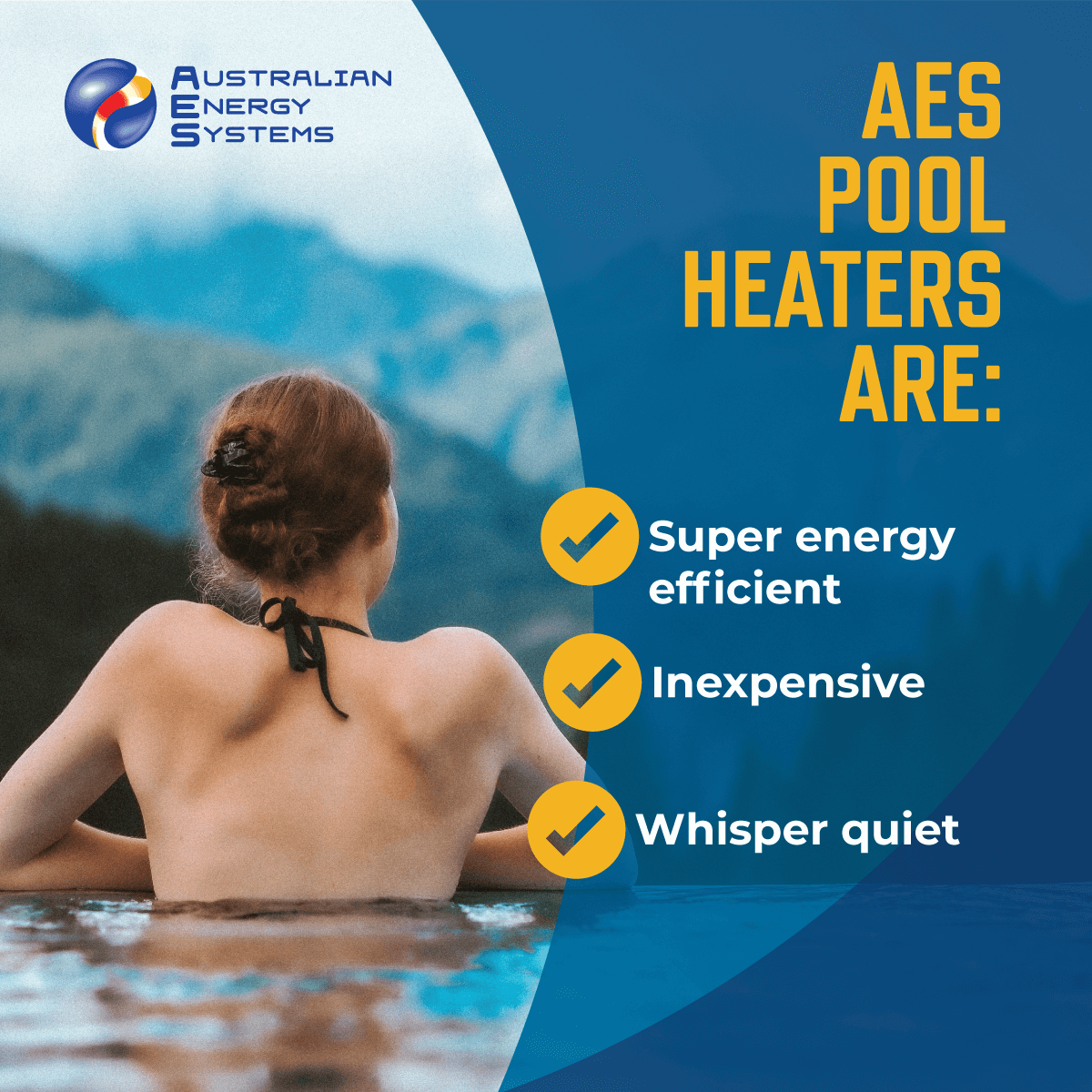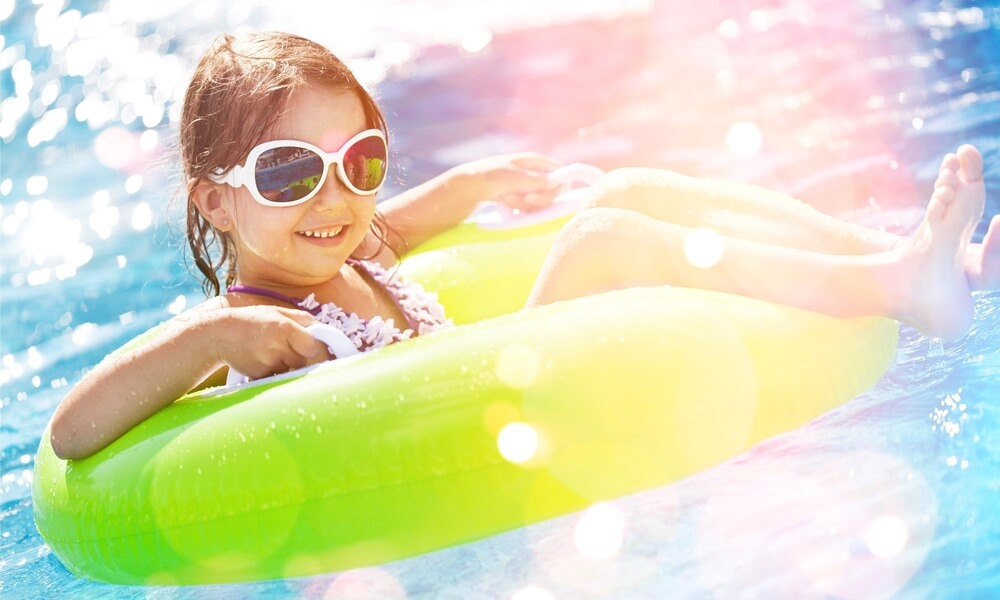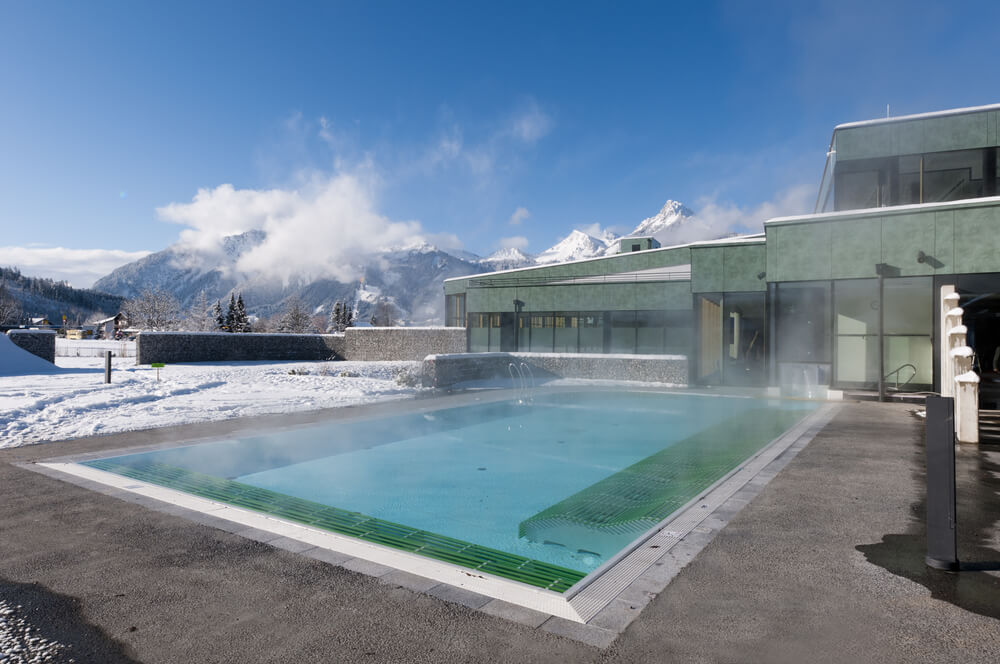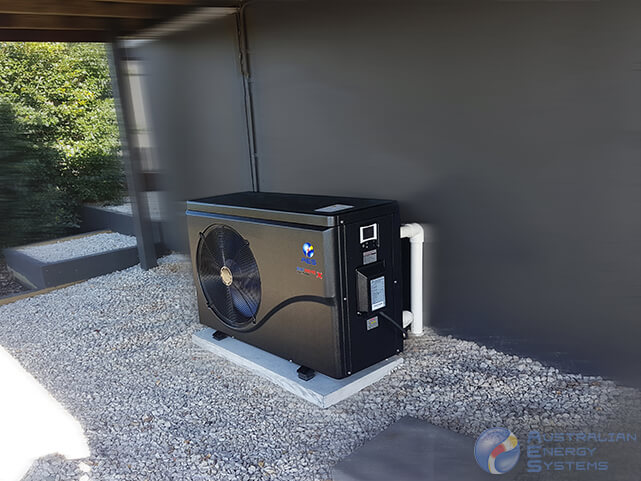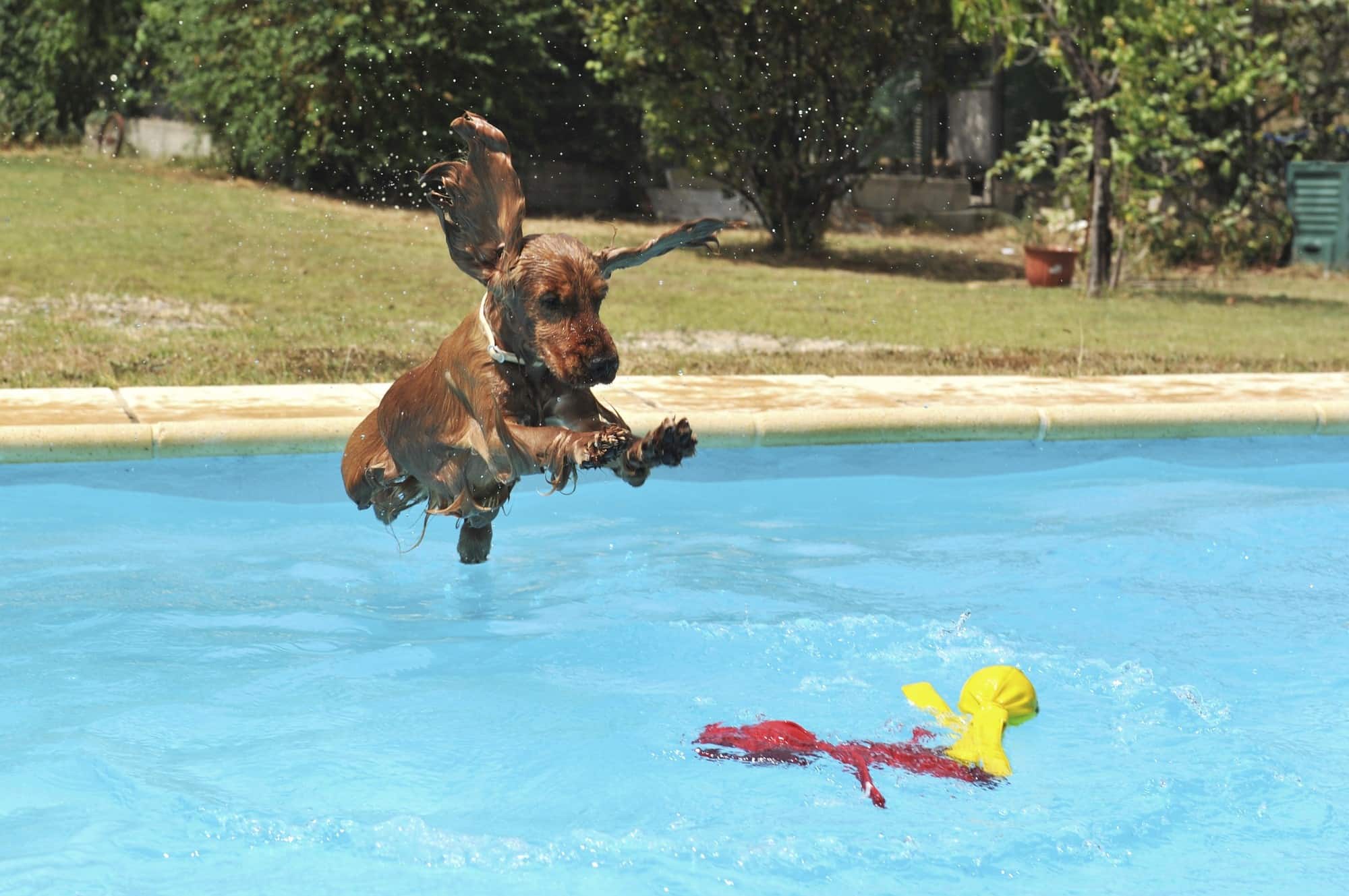The best things in life are free, and that applies to solar pool heating! Solar heating embraces natural energy and transforms it into free (or ultra-low cost) warmth to extend your swim season.
AES Pool Heating Tweet
Even better, high-quality solar pool heating is essentially maintenance-free, giving you more time to bask in your balmy backyard oasis. Its low cost and low-fuss approach have made solar one of the most popular choices amongst Australians today.
Table of Contents
How does solar pool heating work?
Solar pool heaters circulate filtered water through a system of pipes and panels, which heats the water before returning it back to the pool.
The water passes through the filter before being forced upwards towards the solar collectors, which are most often located on your roof. This is where the water is warmed by the sun’s heat before it continues downwards back to the pool.
You can control the water’s temperature via a thermostat. Once the pool reaches the set temperature the valves will switch over and allow water to pass through the filter, bypassing the heating system.
Solar pool heaters have come leaps and bounds in technology over the last ten years. We use the highest quality Heliocol solar pool heaters, which are among the most efficient systems in the world. Heliocol’s technology provides almost 5% better energy collection rates than its competitors and can actually cool your water during summer by operating the same process at night!
Alternatively, our Ultra Solar Systems are an economical Australian-made option. Ultra’s systems can increase water flow by 40%, speeding up your heat time by about 1/5th!
Is there a catch with solar pool heating?
Solar pool heating is ideal for many Australian pool owners because we enjoy so many sun-drenched days – especially if you live in the northern regions such as Queensland.
If you live in a sunny area, you can extend your swim season by up to four months with a solar heating system. That can result in a comfortable swim for most of the year, except for the mid-winter months.
Which brings us to the downsides of solar pool heating. While the low cost is a bonus, the effectiveness of your system will always depend on the weather. You’ll get less consistency and reliability than gas and electric pool heaters that don’t rely on sun power.
Climates that see too many cloudy and rainy days are less ideal for solar, as the water will only be drawn through the heating system if the sun power is adequate. The ambient temperature can also have a negative impact on the system in locations where it’s too cold.
Keep in mind that you will need to think about the long-term savings if you’re considering solar heating. The initial purchase and establishment can be a little more costly than other forms of pool heating. And, it may not be possible if you already have solar panels on your roof (in which case, an electric pool heat pump would be the most cost-effective option).
What are the other pool heating alternatives?
If budget or location restraints count you out of the solar pool heating market, don’t despair. Electric and gas heaters can deliver equivalent (or better) results along with some additional advantages not afforded by solar.
Electric pool heat pumps
We generally find the best all-around option to be an electric heat pump. Electric heat pumps have minimal emissions and low running costs, and you can save even more if used in conjunction with any existing solar systems. They are exceptionally efficient systems that suit most backyards.
Electric heat pumps have a long lifespan that makes them better value for money than other systems. Best of all, their performance is not limited by shaded conditions or cooler climates (although exceptional cold will impact any heating system!).
Gas heaters
Your other option is a gas heater, which is the fastest way to heat your pool – but not the most economical at this point. Gas heating works in all climate conditions and suits small pools and spas, and where sunlight is limited.
If you already have gas plumbed into your home, the installation and setup will be fuss-free and your pool can be heated in as little as four hours! One warning though: talk to your local pool heating professional before you decide, since the rising price of gas could make these systems too expensive to run for your home.
It’s also important that you install the right-sized system for your pool, and that you are aware of the shorter life span of gas heaters compared to solar pool heaters and electric heat pumps.
Choosing the right pool heating system
If you’re not sure if solar pool heating is the right option for your home, you can contact one of our team today. We can talk you through the options and costs, and even visit your home for a free on-site consultation so you have all the information before you decide.

